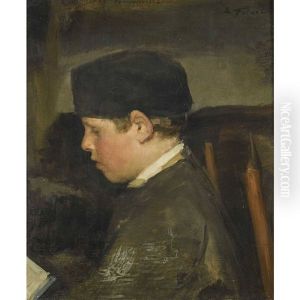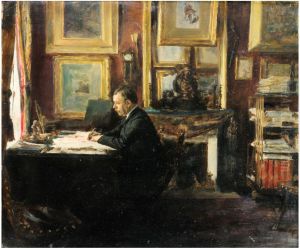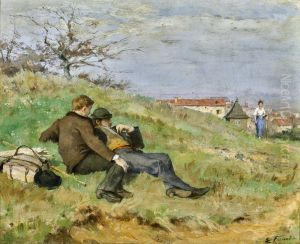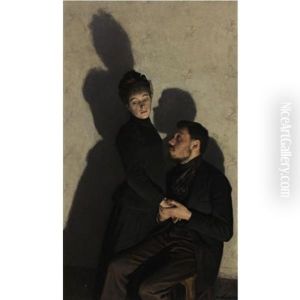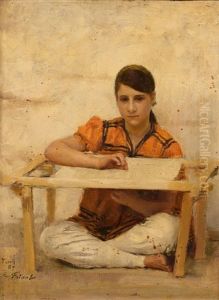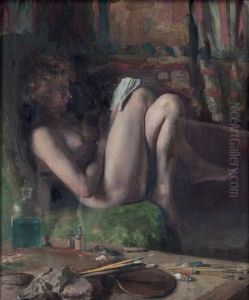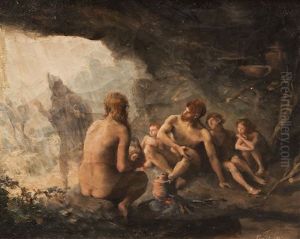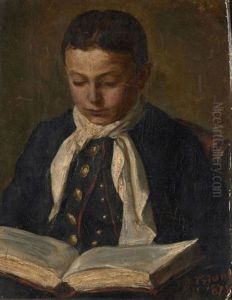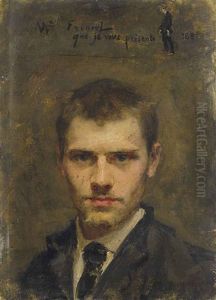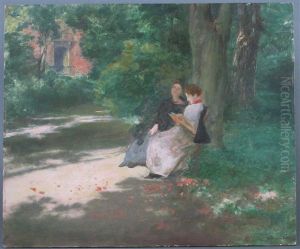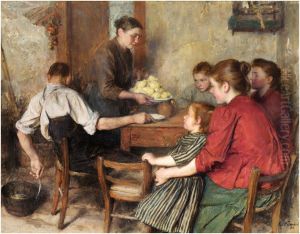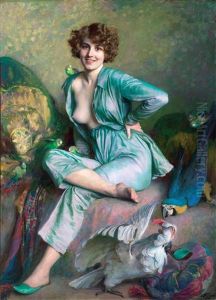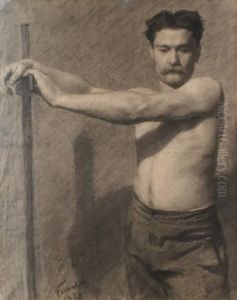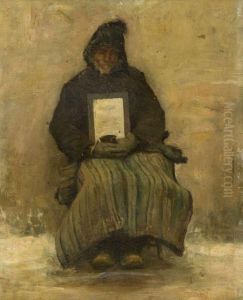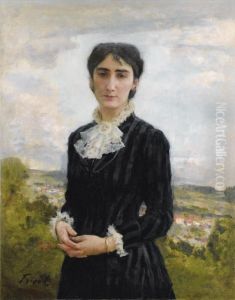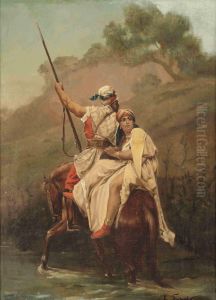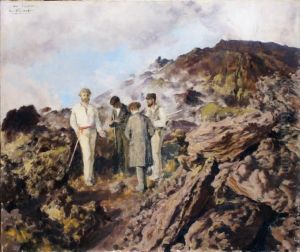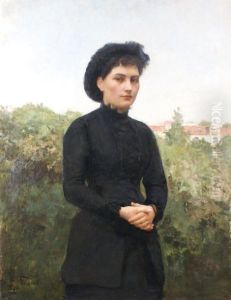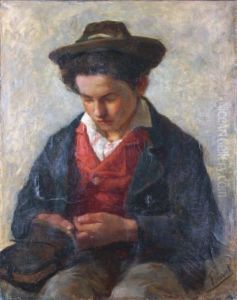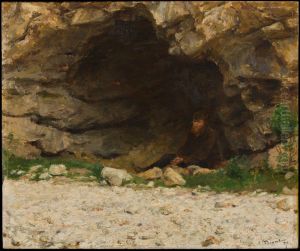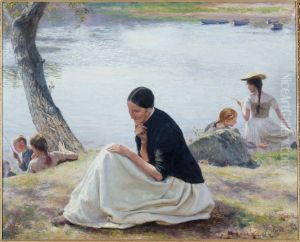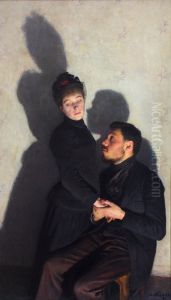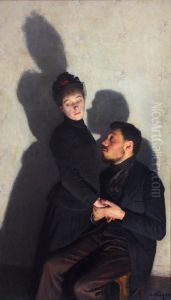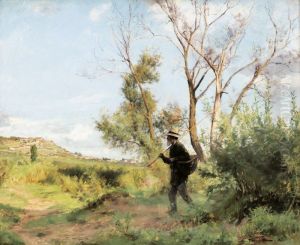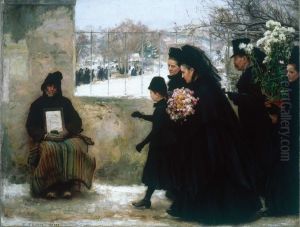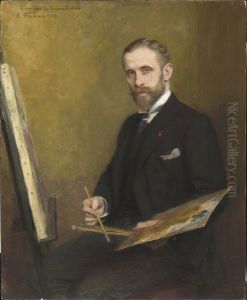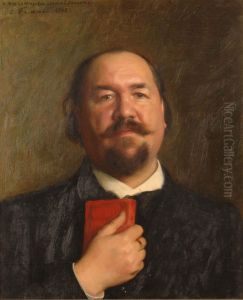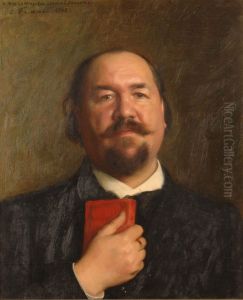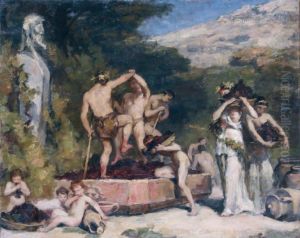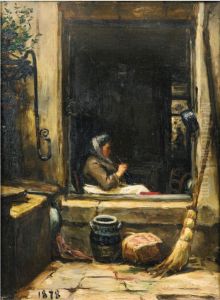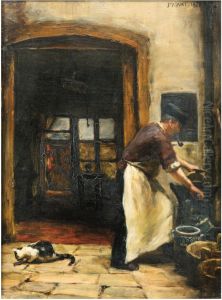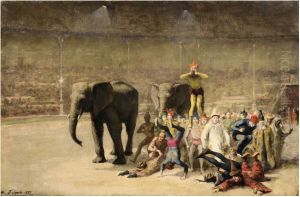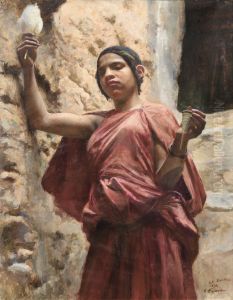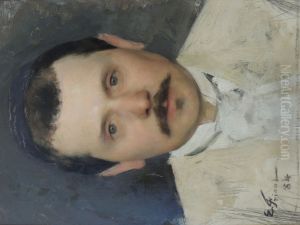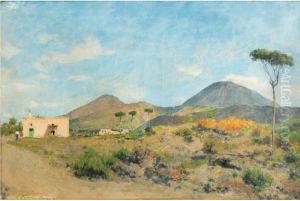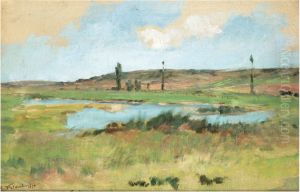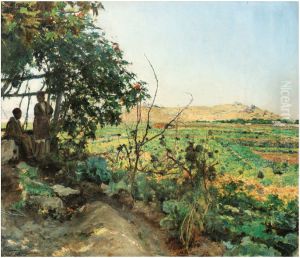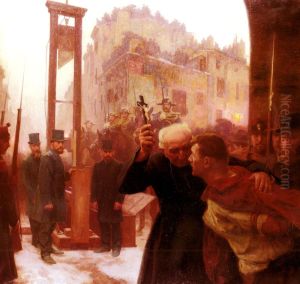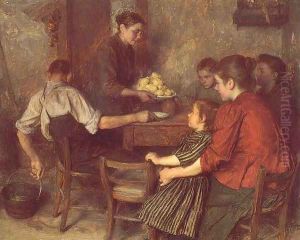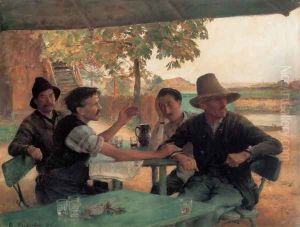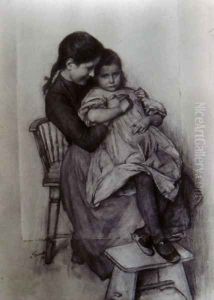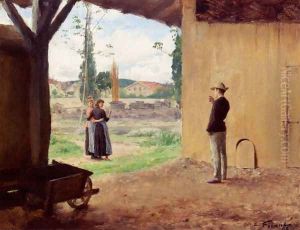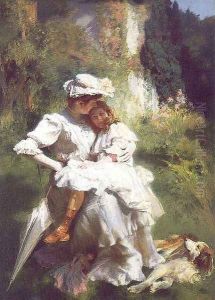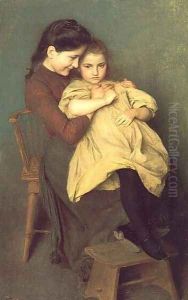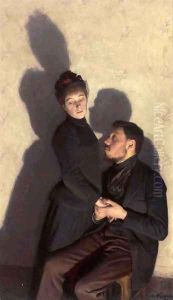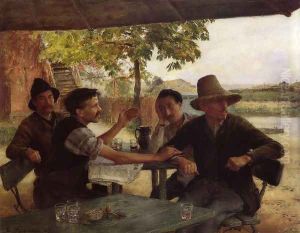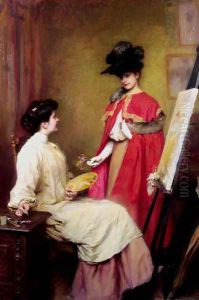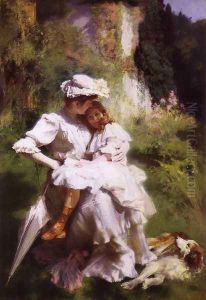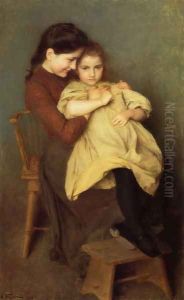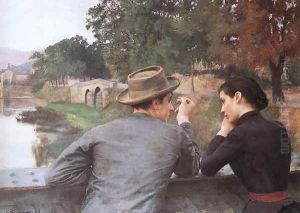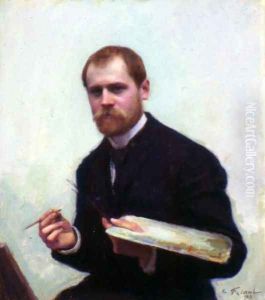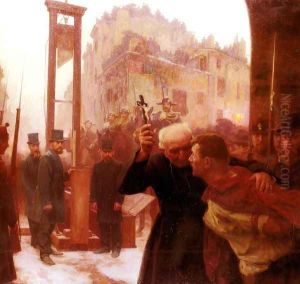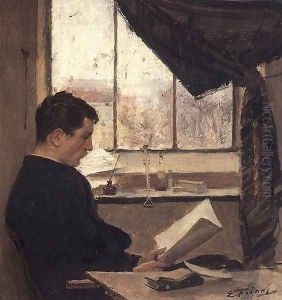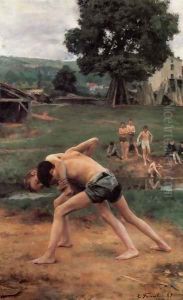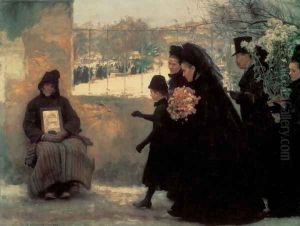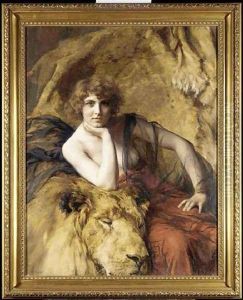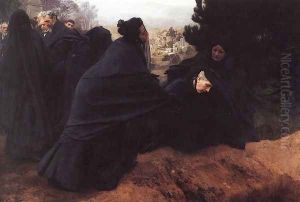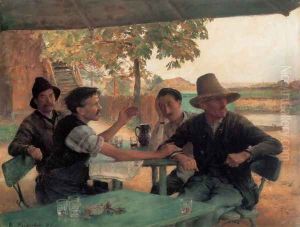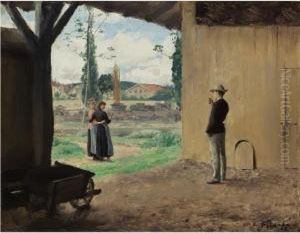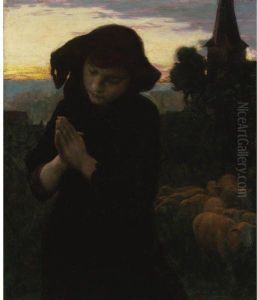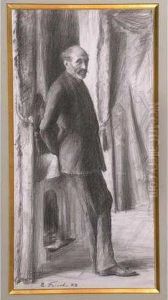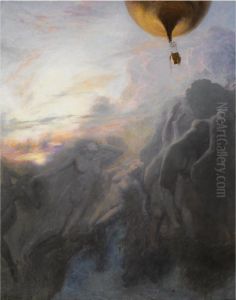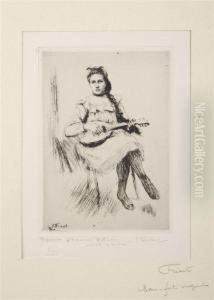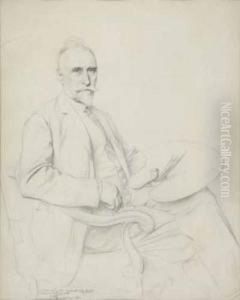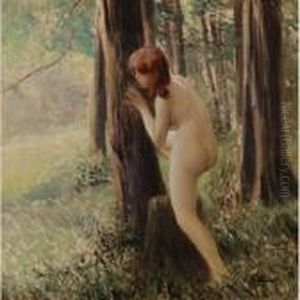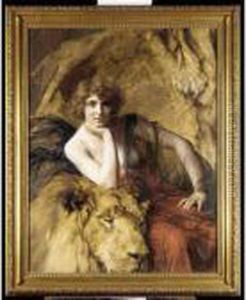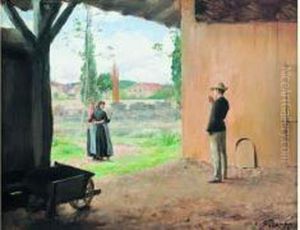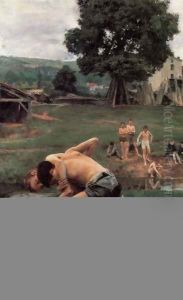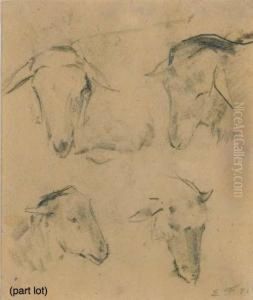Friant Emile Paintings
Émile Friant was a French artist known for his detailed naturalistic paintings which encapsulized the Academic art tradition of the late 19th and early 20th centuries. Born on April 16, 1863, in Dieuze, he was raised in Nancy after his family moved there during his early childhood. Friant showed an early interest in art and was adept at drawing from a young age. He received his formal art education at the School of Fine Arts in Nancy, where he studied under Louis-Théodore Devilly. Later, he continued his studies in Paris at the École des Beaux-Arts under the tutelage of Alexandre Cabanel, who was a prominent Academic painter of the time.
Friant's work is characterized by its precision and attention to detail, often focusing on the human figure and everyday life scenes. He was influenced by the Naturalist movement, which sought to depict things 'as they are' and was often contrasted with the Romantic or Idealist schools that were popular earlier in the 19th century. Friant's painting 'The Lovers of Painting', exhibited at the Salon of 1885, garnered him the Second Grand Prix de Rome and solidified his reputation as an upcoming artist. In 1886, his work 'La Toussaint' (All Saints' Day) won a gold medal at the Salon, and it is considered one of his masterpieces. This particular painting, which portrays visitors at a cemetery, is praised for its emotional depth and the realism of its characters.
Throughout his career, Friant participated in various exhibitions and won numerous awards. His works were exhibited internationally, including at the Universal Expositions in Paris in 1889 and 1900. Although Friant's art is less well-known today, during his lifetime, he was highly respected and his paintings were sought after by collectors. He was also an influential teacher, serving as a professor at the École des Beaux-Arts in Nancy. His impact extended beyond his own work, as he influenced a number of students who would go on to have their own successful careers.
Émile Friant's later years were marked by his involvement in World War I, where he served as a camoufleur – an artist tasked with creating camouflage. This experience had a profound impact on him and influenced some of his later works. After the war, he continued to paint, although with a shift in subject matter and style, reflecting the changes in the art world and his own personal experiences. Friant died on June 9, 1932, in Paris. Despite his death, his legacy lived on through his paintings, which remain a testament to the skill and artistry of the Academic tradition at the turn of the century.
